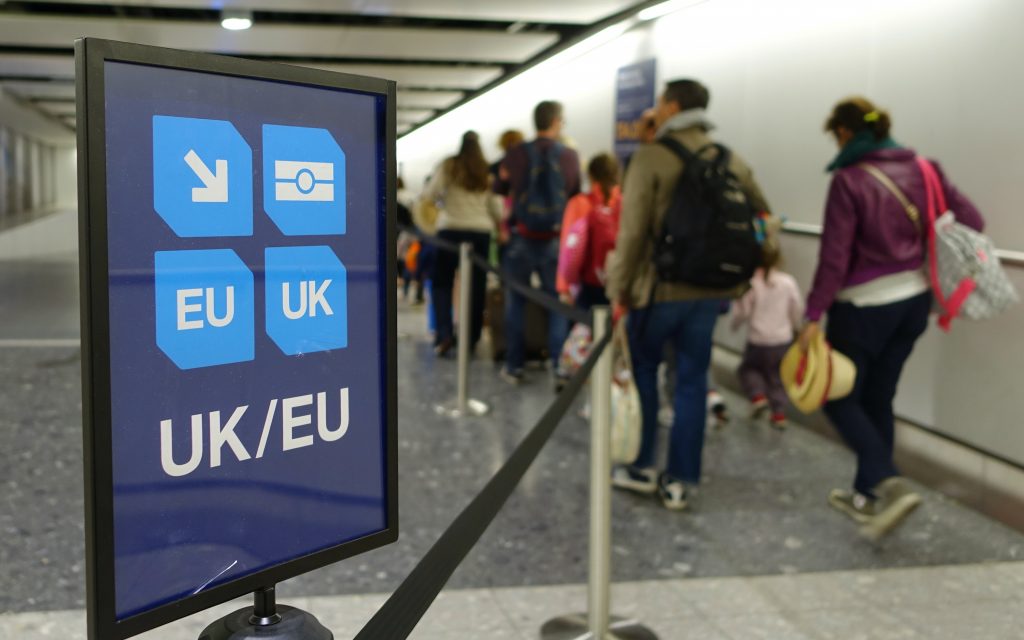 Migration
Migration 
Last week the Migration Advisory Committee launched its report on EEA migration in the UK, today Lucy Stone explores their recommendations and what it could mean for Wales.
On Tuesday 18th September, the Migration Advisory Committee (MAC), who were commissioned by the UK Government to report on the current and likely future patterns and impacts of EEA migration in the UK, published its long awaited final report ‘EEA Migration in the UK’. The aim of the report is to provide an ‘evidence base’ for the design of a new UK migration system after the end of the Brexit transition period in 2021.
Main MAC findings
So what does the MAC report say? Well the report has strong evidence to dispel some of the negativities and myths surrounding EEA citizens in the UK. Firstly, it found that EEA migrants have little to no impact on the level of employment, unemployment and wages of the UK born workforce. Secondly, there was evidence that EEA immigration has a positive impact on productivity with higher-skilled migrants having a positive impact on innovation and no evidence that migration effects training among the UK born workforce.
Thirdly, the report found evidence that EEA born citizens pay more in taxes than they received in benefits and contribute much more to the health service and social care in financial resources and through employment than they consume in services. There was also no evidence that EEA migration has an impact on crime and or that migration has reduced the average level of subjective well-being in the UK. Though the report also found that EEA migration has increased house prices and with regards to social housing, a rise in EEA migrants accessing it indicated less opportunity for other potential tenants.
MAC Recommendations
It is important to add here that the discussion and recommendations made in the report focuses on what the future UK migration system could look like if it was set in isolation and excluded from Brexit negotiations – if EEA migration is included in Brexit negotiations it could look quite different. Nonetheless the main recommendations made in the report include:
- No ‘preferential’ treatment for EEA citizens,
- Provide greater access for higher-skilled migration by abolishing the Tier 2 cap, adding medium-skilled jobs to Tier 2 eligibility and retaining the £30,000 salary threshold through the UK,
- Reduce access for lower-skilled migration by rejecting a work route for lower-skilled workers (with the exception of seasonal agricultural workers scheme) or expanding the youth mobility scheme rather than introducing employer-led sector-based routes, and not allowing migrants with below level 3 qualifications on the regulated qualifications framework to work in the UK, and
- Rejecting the introduction of more regional variations, especially lower salary thresholds.
What it could mean for Wales
The good news is that the MAC has advocated to include medium-skilled jobs under the Tier 2 visa requirements and recommended scrapping the cap on Tier 2 visas which widens the range of jobs eligible for migrant workers and could go a long way to filling higher and medium-skilled jobs in STEM sectors and the health service. Although, the suggestion of retaining the £30,000 salary threshold has caused some concern as the average salary in Wales is lower than the UK average, which could reduce the number of high to medium-skilled workers into Wales.
The bad news is that they have suggested limiting the number of lower-skilled migrants into the UK. According to the MAC interim report EEA workers make up a significant share of the workforce in some lower-skilled sectors in Wales, with EEA migrants making up:
- 25.6% of the share of the ‘manufacture of food and beverages’ workforce,
- 5.4% of the share of the ‘accommodation and hospitality’ workforce,
- 3.9% of the share of ‘non-professional admin & support service activities’ workforce,
- 3.4% of the share of the ‘other manufacturing’ workforce, and
- 3.1% of the share of the ‘health’ workforce.
So, if the new UK migration system reduced the number of lower-skilled migrants or migrants working in lower-skilled jobs into Wales this could lead to a drop in the workforce for such jobs in the future.
Extra analysis from the Institute for Public Policy Research (IPPR) found that under the MAC proposals to reduce lower-skilled migration 7 in 10 EEA workers could be ineligible to work in the UK (including Wales) under the new migration system, with accommodation and hospitality, transport and storage, and wholesale and retail being most affected.
Devolved immigration policy
The rejection of introducing regional variations in the migration system dismisses devolved or regional immigration policies. Dismissing such ideas could take these discussions off the table and strengthens the one-size fits all migration system that we currently have for non-EEA born citizens which does not consider demographic and economic differences in Wales.
Research by British Future and HOPE not hate found that perceptions that the UK Government did not take the Welsh economy into account has resulted in some people wanting powers over immigration devolved. This is not something that the Welsh Government have advocated for, but in their report ‘Brexit and Fair Movement of People’ the Welsh Government asserted that if the new UK migration system did not consider the Welsh economy they would ask for more powers over some aspects of immigration policy.
It is important that the debate over devolved immigration policies and giving more power over immigration to devolved administrations is not swept under the carpet. This is why the Bevan Foundation is looking at immigration policy from a Welsh perspective and is holding a symposium this Autumn to open the debate around whether Wales could benefit from having more powers over immigration.
For more information about the symposium or our work on immigration policy and integration please contact us or support us to get exclusive articles and updates on our work.
Lucy Stone is policy and research officer at the Bevan Foundation.

